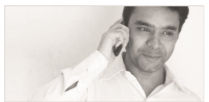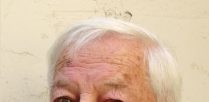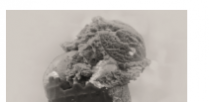Let’s discover new grammar today!
We are going to study the plurals. Inside them is the subject of countable and uncountable. You can consult the following infographic for more detailed explanation.
The main rule of the plural form is adding “s” at the end of the word.
- A table – two tables
- A flower – two flowers
- A door – The Doors
- An island – two islands
- A pack – two packs
- A day – two days of the week
- One week – two weeks

When we have the irregular endings we have got a benefit: usually they correspond to the irregular verb endings in Present Simple.
When we have “s” we add “es”:
- Bus – buses
When we have “sh/ch” we also add “es” in the end:
- One watch – two watches
- One dish – two dishes
- Bush – Bushes
The same rule we use when we have “x”:
- One box – two boxes.
“Y” changes to “ies”:
- A baby – two babies
- A party – two parties
BUT we have got some exceptions when we do not change the ending:
- “ay” A day – two days
- “ey” a key – two keys
- “oy” a boy – two boys
- “uy” one guy – two guys
And one more exception we haven’t discussed yet. The “f/fe” endings that change to “ves”:
- One wife – two wives
- One shelf – two shelves.
There are some words that can be only plural in English.
How to check these words? We can either say “a pair of” speaking about the following things, or we cannot divide these objects in two.
- A pair of jeans = jeans. We can’t say jean, because this will mean the tissue for making jeans.
- A pair of glasses = glasses. If we divide the glasses in two, it will be difficult to use them as we used to. The glasses will become a monocle or an eye-glass.
- A pair of scissors = scissors. The process of using these things requires the using of two parts of the object at once. Without the second side the scissors will become a knife.
Some words have just different forms and don’t end with the “s”.
- One man – two men
- One woman – two women
- Your one child – my three children
- Left foot – two feet
- First tooth – 32 teeth
- One person in love with another person in love – two people in love
- And the last example: the Police. They can’t act one at a time, so the rule appeared: the police are always considered in plural.
Those rules were difficult maybe, but now the easier ones come.
The easiest way to distinguish countable from uncountable is to try to count them.
It is not correct to say, “Give me four sugar grains, please.” We will say, “Give me some sugar, please.”
And so on: water (not drops of water), salt, air, rain, oil, music, and tennis.
We also cannot use money in plural. Yes, we can try to count them, but we won’t call them money. “Give me two money, please?!” No, that’s impossible.
For some of the uncountable we can use “a piece of; a cup of; a bottle of; a bar of; a can of.”
- A piece of cake
- a cup of tea
- a bottle of water
- a can of oil
- a cup of milk
- a piece of music
When we do not need a piece of, but less or more, we can say “some.”
This is the most wonderful way to hide that you don’t know the rules of uncountable and countable nouns. You can use “some” with both of them.
- You want some water.
- You’d like a bottle of water.
- I’d like to take a cake.
- I’d like to take some cake.
- I need some money.
- Oh! You need much money.
- I have got some good news for you.
Find the homework for this lesson here.






